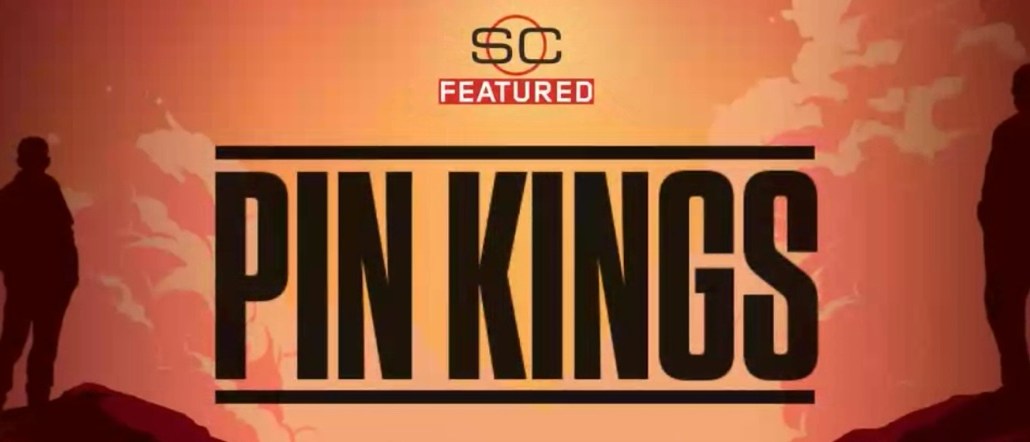Secure your place at the Digiday Publishing Summit in Vail, March 23-25

The dog days of August are often a time of experimentation for media companies. And ESPN decided it would use one of the slowest months of the year to roll out “Pin Kings,” the most ambitious multi-platform storytelling project in its history.
While the project didn’t tear across the media landscape, ESPN producers see “Pin Kings” as a first step toward assembling these packages regularly, and selling their multi-platform audiences to advertisers.
“What’s unique about ‘Pin Kings’ is the size of it,” said Victor Vitarelli, a senior coordinating producer in ESPN’s features unit. “The storytelling unit has a history of trying to get our content to as many platforms as possible, but it’s been on a smaller scale: This is the first one where we said, ‘This is what we have; let’s make sure each consumption is different.’”
If you sat down at a blank page to dream up a long-form story for ESPN, you could hardly do better than “Pin Kings.” Its two main characters, Alex DeCubas and Kevin Pedersen, starred as co-captains of a state-title-winning high school wrestling team in Florida in the 1970s. After graduation, Pedersen wended toward a career in the DEA, while DeCubas shot right into the upper ranks of the Colombian drug cartels, moving tons of cocaine around the world.
The two eventually cross paths again — no spoilers on how — and that story, which was first chronicled in the Miami Herald’s Sunday magazine, serves as the raw material for a 5,000-word story published on ESPN.com (as well as in ESPN The Magazine), a 16-episode podcast miniseries, a number of video vignettes (like the one below), as well as an hourlong special that debuted first on WatchESPN before airing Monday on ESPN2; it will air at least four more times in the coming weeks.
ESPN does not share click or traffic data for individual stories on ESPN.com. However, the hourlong video version of “Pin Kings” saw around 950,000 people tune in on ESPN2 and WatchESPN, its streaming video app, with an average minute audience of about 220,000. And episodes of the Pin Kings podcast were downloaded more than 200,000 times, good enough to push it into the top 10 of sports podcasts on iTunes, and into the top 50 of podcasts overall.
That latter number was helped along by a promotional strategy that saw the first episode of Pin Kings pushed into the feeds of several other ESPN podcasts, including NBA Lockdown, The Lowe Post and Hot Takedown, a podcast produced by FiveThirtyEight.
To drive people to the story and the videos, it pushed messages out across all its other digital channels on a scale that, according to Vitarelli, was higher than normal.
On the sales front, ESPN was less aggressive. While the audio ad sales team managed to drum up a sponsor for the podcast, it didn’t bother trying to sell sponsorship for the hourlong video. But as ESPN’s producers get used to putting these together, it hopes to start selling the entire audience to an advertiser. “If you’re a fan of this story,” Vitarelli said, “you’re going to want to go to podcasts, and go to the videos; you’re going to want to read it.”
“If we do one of these quarterly, we’re now selling this as a complete, cross-platform execution.”
It won’t be long before Vitarelli and his team get to try it again. He said his team has already identified a number of stories worthy of the Pin Kings treatment, and that he and his team have begun sketching out how to tackle them. “We’ve already started,” he said.
More in Media

Media Briefing: As AI search grows, a cottage industry of GEO vendors is booming
A wave of new GEO vendors promises improving visibility in AI-generated search, though some question how effective the services really are.

‘Not a big part of the work’: Meta’s LLM bet has yet to touch its core ads business
Meta knows LLMs could transform its ads business. Getting there is another matter.

How creator talent agencies are evolving into multi-platform operators
The legacy agency model is being re-built from the ground up to better serve the maturing creator economy – here’s what that looks like.





